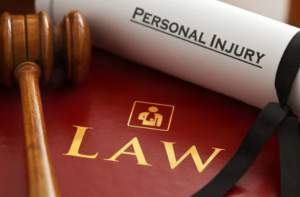
You’ve been in a car accident, what should you do now? The decisions you make in the first few seconds after the accident can help or hurt you significantly in the future when it comes to insurance coverage, health care, and the law. If you want to know what you should do, click here. Leaving the scene of an accident can be used against you and recorded as a high-profile crime, leaving you open to serious legal consequences. If you don’t have a mobile phone to call the authorities and your insurance company, ask another driver involved, or perhaps witnesses in the area if you can borrow a phone so you don’t have to leave the scene to contact someone.
Call for Medical Help
All drivers and passengers should immediately check to see if anyone is injured. Call for medical help immediately if anyone needs attention. While some mishaps may seem harmless at first, they can develop into serious situations as the days go by. If one or more of these problems occur today, weeks or months after the accident, seek medical help and also contact your lawyer and car insurance provider to inform them of the change in medical care. Delayed accidents can greatly change the way post-accident claims are handled, so always make a note with the appropriate parties.
Move Vehicles to a Safe Place

If the chaos was minor and there were minimal or no accidents, another step should be to move the vehicles to a safe location. Further damage and injury can occur if vehicles are left in areas with little traffic. However, if an accident is suspected, the police should still be called and efforts made to prevent further damage. Emergency lights should be switched on immediately to warn other drivers that the vehicle is disabled. If traffic cones are available, use them to provide an additional warning to other drivers about the condition of your car or truck and the surrounding area.
Gather Important Information
Often, however, calling the authorities after a traffic accident is only one of the first actions that those involved need to take. After confirming to everyone involved that they have suffered little or no injury, gathering information is a further step in ensuring that everything is handled properly after a car collision. Simply exchange and obtain information that is relevant to the people involved. This includes not writing anything down unless it is for the authorities or your (other driver’s) insurance company.
Claim Your Injury Insurance
You mustn’t discuss the details of the claim with anyone except the police, your insurance company, and your lawyer, if necessary. It is best to distribute the claim immediately while you are still recovering from the sight of the wreck, but sometimes this is not feasible. If you have to delay filing a claim because of an injury, inform your insurance agent of the accident and document the damage as soon as possible. Also include details such as your injuries, information on how they were determined, and also how the mix-up occurred.
Keep Records of the Accident
Once all other items are covered, seek help in removing your vehicle from the scene of the accident. If your insurance plan includes roadside assistance coverage, talk to your insurance agent about the possibility of your insurance company taking your car. Otherwise, check with law enforcement about your options for removing your car in the area. Regardless of the severity of the accident, it is critical to keep records of everything related to the collision along with reports and information received afterward. Keep detailed records of all medical assessments and bills.
Hire a Lawyer

Depending on the brevity of the accident, a lawyer may not be necessary. However, when it comes to serious accidents, acute car accidents, or public property damage, hiring a lawyer after a car accident may be a good option. A lawyer may also have the ability to help you navigate through the processes of working through insurance claims, dealing with medical bills, and dealing with any government filings that may have caused the accident. You will also be more likely to get all of the policies and benefits that are available to you depending on your insurance coverage.

 When you are not discharged from your practice, continue with another set of steps. If a man is in a coma or unable to work, a relative or friend can take all these crucial steps. Once you have filed a police report and received medical treatment, you should call a law firm for personal injury. When we say “if possible”, we suggest the day of the shipwreck or the next day.
When you are not discharged from your practice, continue with another set of steps. If a man is in a coma or unable to work, a relative or friend can take all these crucial steps. Once you have filed a police report and received medical treatment, you should call a law firm for personal injury. When we say “if possible”, we suggest the day of the shipwreck or the next day.